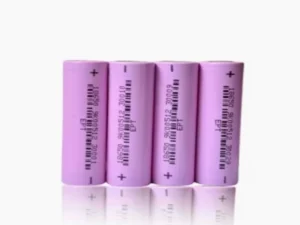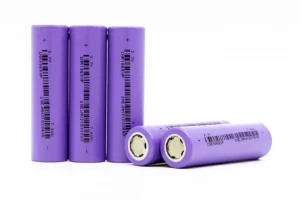Introduction:
Today, a wide range of electronic devices have become essential to play an important role in people’s lives. We are surrounded by mobile phones, computers, digital cameras, and other electronic devices daily. They all have one thing in common, and that is batteries. There are many different types of batteries on the market. Each type of battery has an area of expertise, and, at the same time, it must be lacking in one area compared to others. It’s a question of strengths and weaknesses. Today, we will discuss two main types of batteries, namely NiMH and lithium-ion batteries. Arguably, they are the two most popular batteries on the market. Read on if you want to choose the one that suits you best!
Before we get into NiMH vs. lithium-ion batteries, let’s understand what they are.
What is a NiMH battery?

NiMH batteries, which were initially created in 1989, are incredibly affordable and function similarly to an uncharged alkaline battery. They are less likely to leak or explode and have a slightly lower but generally compatible cell voltage.
What is a lithium-ion battery?

An advanced battery technology known as a lithium-ion battery makes use of lithium ions as a crucial part of its electrochemistry. Lithium atoms in the anode are ionized and separated from their electrons during a discharge cycle. From the anode, the lithium ions travel through the electrolyte to the cathode, rejoining their electrons and becoming electrically neutral.
NiMH VS Lithium ion batteries Pros and Cons
Two of the most widely used batteries in the world are NiMH and lithium-ion batteries. Some applications may require one of these two batteries for various reasons. The following will explain the differences between NiMH and lithium-ion batteries. NiMH or Li-ion batteries, which is better?
Pros
These batteries are usually used for devices that use a lot of power, like laptops, cell phones, iPods, and digital cameras. However, they have a few distinguishing features that make one type more efficient than the other in certain ways.
Good Energy Density
These batteries have an average power capacity of 2200mAh. This is more than the 1500mAh seen in Li-ion batteries. These numbers are the common measurements for 1. 2-volt NiMH batteries and 3. 7-volt Li-ion batteries
Compatibility
If you have 10 gadgets that use a NiMH battery, you can use one pack to power all of them. However, you cannot use all of the gadgets simultaneously. NiMH batteries are made in sizes like AAA or AA, so they can work with any devices that use these sizes. The sizes of Li-ion batteries can vary depending on the company that makes them or the type of device they are used in. I saw some small batteries called AA-size Li-ions being sold in stores. It might be a good idea to go and see what they are like.
Safety
They contain fewer active substances compared to Li-ion batteries. NiMH batteries can burst if they are charged too much or have a short circuit. However, their risk is much lower compared to Li-ion batteries, which have the potential to explode.
Cons
There are some significant downsides to using NiMH batteries compared to other types of batteries.
Store Less Energy
NiMH batteries store less energy for their weight or size. This means that cars will be able to travel shorter distances, which could be a big problem for people who worry about running out of gas. Furthermore, NiMH batteries have a higher rate of losing energy when not in use compared to lithium-ion batteries. This feature can be very dangerous for electric vehicles that are stopped for long periods of time.
Temperature
Another downside of NiMH batteries is that they can be affected by very hot or cold temperatures. High temperatures can negatively impact their performance and lifespan, while low temperatures can decrease their ability to provide power. This restriction can be difficult in places where the weather changes a lot.
Environmental Concern
Even though NiMH batteries don’t need rare materials like cobalt and lithium, they still use nickel in their production, which can cause environmental and ethical worries about mining practices.
In simpler words, these batteries are not expected to be used more in electric cars. However, they will continue to be used in hybrid cars that don’t necessarily need more energy capacity.
Lithium-ion Batteries Pros and Cons
Pros
Reliable Batteries
These batteries don’t lose their charge as fast as NiMH batteries. So, these batteries are good for small things like clocks or watches that don’t use a lot of electricity.
Small & Compact
Lithium-ion batteries are very small and compact in size as compared to NiMH batteries in terms of power and modernity.
Deliver High Voltage Output
Lithium-ion batteries deliver higher voltage power than NiMH Batteries. We can observe that lithium-ion batteries’ one cell delivers 3.7 volts more than NiMH two cells which provide only 2.4v.
Fast Recharging
Lithium-ion batteries are really smart as they take only 1-3 hours to recharge than NiMH which takes 10-12 hours.
Cons
However, lithium-ion batteries also present some difficulties for the electric vehicle industry.
Less Safe
One important issue is that it is hard to get enough raw materials like lithium and cobalt, which are really important for making batteries. The extraction of these materials often has ecological and ethical implications. And, making lithium-ion batteries contributes a lot of carbon emissions which can cancel out some of the environmental advantages of electric cars.
Poor Performance in Long Run
Worrying a bit about getting things done on time. Over time, the performance of lithium-ion batteries gets worse, resulting in a decrease in their ability to hold a charge and be charged for a long period. This could result in more expenses for customers who need to replace the battery. Despite these problems, companies are still working on and developing modern lithium-ion batteries, and they are expected to improve more and more in the future.
Conclusion
Do you already know these two main types of batteries, NiMH and lithium-ion batteries? Although one is technically better than the other, there are significant differences between these chemistries. In most categories, Li-ion batteries are better. Li-ion batteries have a five-year overall life expectancy, five times longer than the NiMH’s two to five-year life span. The Li-ion battery also charges faster, can withstand extreme temperatures, and lasts longer than NiMH. NiMH batteries are more expensive than Li-ion. They require very little maintenance and do not have to follow the shipping regulations required for Li-ion batteries.
The above is all about NiMH vs. lithium-ion batteries. I hope it will help you.

